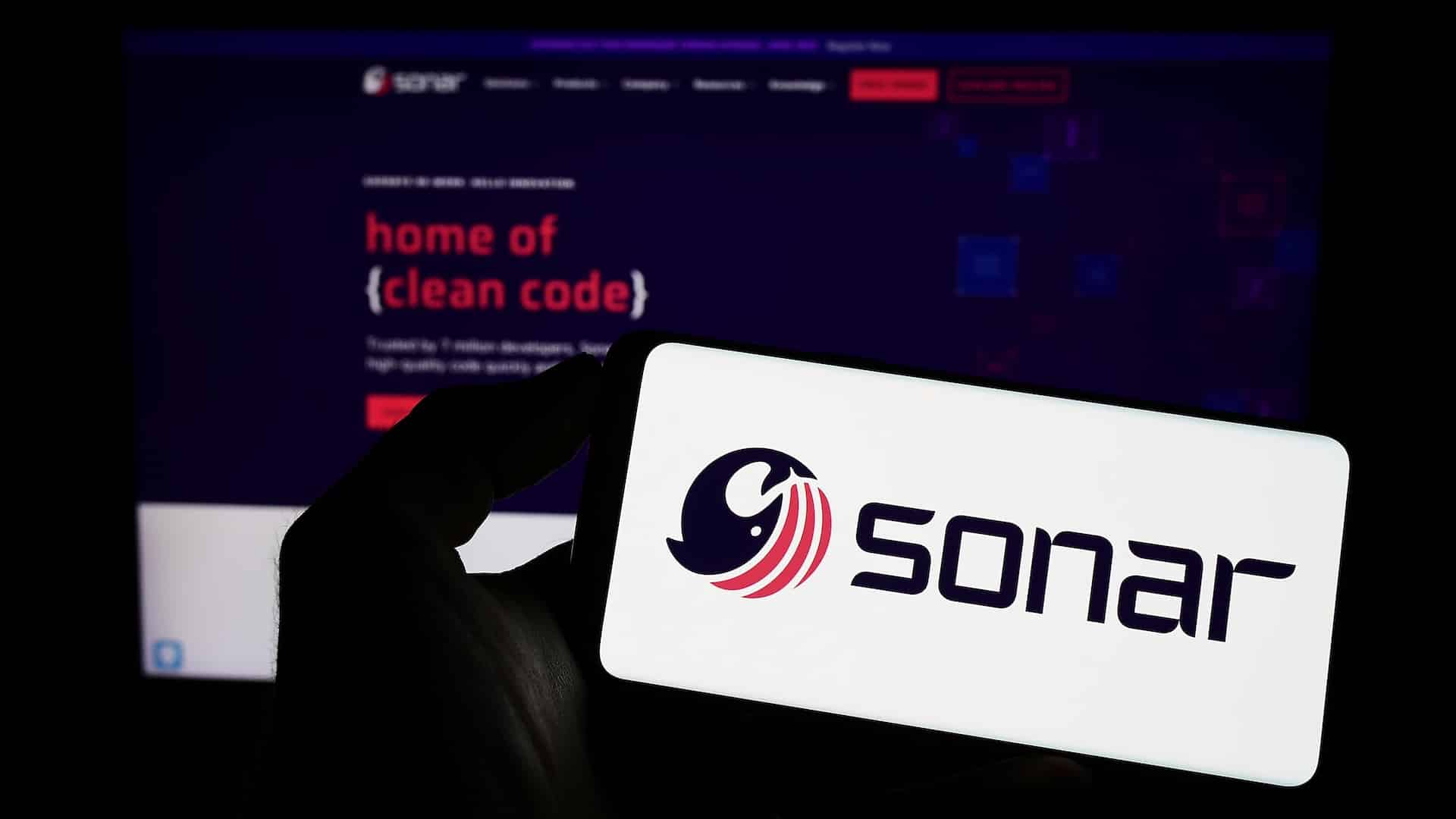Explore the benefits of IT support outsourcing, costs, outsourcing levels and selection criteria. Discover our innovative approach at Qim info.
Originally, outsourcing was only used by large companies, mainly to make up for a lack of in-house skills and to fine-tune their operational efficiency. But times have changed!
Today, whether it’s to manage a website or a computer park, outsourcing IT management has become a wise choice: it offers not only expertise, but also an opportunity for companies to refocus on their core business. In this article, we’ll explore why outsourcing has become a must and how it can help your business.
What exactly does IT support outsourcing mean?
Outsourcing refers to the process by which an organization process by which an organization delegates some of its activities to a specialized external company, known as a service provider.. In the context of IT support, this means entrusting the management, maintenance, troubleshooting and support of IT systems to an external service provider, rather than managing them in-house.
Managed services and outsourcing
“Managed services or outsourcing? Each term refers to two different approaches to IT support outsourcing.
Traditionally, outsourcing is based on a reactive approachThis means that the service provider intervenes mainly when a problem arises, to resolve incidents as quickly as possible.
Managed services adopt a proactive approach and their mission is to detect and correct anomalies before they cause major problems. It also means aligning the company’s IT infrastructure with its strategic objectives. This includes maintaining, updating and adapting the system.
That said, the two terms tend to be used interchangeably. Thus, outsourcing and managed services refer to a combination of three elements:
- a strategy for the customer company,
- remedial action when a problem arises,
- preventive actions to avoid incidents.
IT support outsourcing services
We’re talking here about a wide range of services, from basic technical support such as end-user assistance or incident management, to more complex services such as infrastructure management.
However, it is essential to understand that outsourcing does not necessarily mean relinquishing control of IT systems.. On the contrary, with clearly defined service level agreements (SLAs), companies can ensure that the external service provider meets precise quality standards and delivers an optimum level of service.

Why outsource IT support?
More and more small and medium-sized businesses are opting for outsourcing, for a number of reasons.
Save time to focus on your core business
Outsourcing enables a company to concentrate fully on its core business. No more time spent solving technical problems!
Save on costs
One of the major advantages of outsourcing is the savings achieved: costs linked to training, hiring and infrastructure maintenance are reduced. This enables small and medium-sized businesses to adjust their IT budgets, while benefiting from an efficient, tailored information system. Outsourcing also means more stable budgeting, with no unexpected costs.
Benefit from top-level expertise
Hiring qualified IT staff can be difficult for SMEs. With outsourcing, even small businesses have access to skilled, qualified technicians. The result? A state-of-the-art infrastructure, adapted to the real needs of the company and conducive to its growth.
Legal protection
Outsourcing IT support offers a layer of legal protection. In the event of an incident, such as a hacking attack, responsibility may rest, in whole or in part, with the service provider.
What’s more, regulations are constantly evolving, and a qualified service provider will keep you up to date.. We’re thinking in particular of the new Swiss DPA (Federal Data Protection Act), which will cause major upheaval for companies that weren’t RGPD-compliant.
Strengthening cybersecurity
Outsourcing providers are often better equipped to manage data security. Their expertise and strict security protocols ensure greater protection against cyber-attacks and security breaches.
The different levels of IT support outsourcing
There are different levels of IT support. Numbered from 1 to 3, they represent a gradation in the complexity of the user’s request.

Level 1 IT support
Commonly referred to as the helpdesk, this is the level of initial incident management – i.e. the degradation or interruption of a service – and customer support. The contact person (who doesn’t necessarily have advanced technical skills) is responsible for establishing the first exchange with the customer, and is tasked with making a preliminary diagnosis, then attempting a resolution. If the incident proves too complex, it is escalated to the next support level.
Level 2 IT support
The aim of the technician or engineer who intervenes is to identify and rectify a problem, i.e. the cause of a recurring incident. If the situation cannot be resolved at this stage, it is escalated to level 3.
Level 3 IT support
Specialists, such as engineers, administrators and system and network architects, are called in for complex incidents requiring in-depth expertise and knowledge.
How much does it cost to outsource IT support?
It’s true that we’ve highlighted the savings that can be made by outsourcing IT support. However, the budget for the service is a criterion to be taken into account, and it is essential to understand all the associated costs in order to properly evaluate the investment and compare the offers on the market. The following elements can help you estimate the cost of delegation.
Type of service
Simply put, what do you need? Maintenance, help in defining your strategy, proactive advice? That’s the first question to ask. A good partner can also help you pinpoint your needs, should you have any uncertainties.
At Qim info, we adapt to your needs: you can delegate all or part of the management of your information system to us, at your convenience. We can provide N1, N2 and N3 support services, as well as training and coaching for your teams. Whatever your needs, we have the solution.
To complete our offer and maximize our added value, we also integrate remote intervention services. This option enables rapid response to incidents without the need for a physical presence, guaranteeing invoicing based solely on productive time.
Pricing method
Some providers charge by the hour or by the minute, others prefer a monthly fee, while some adopt a mixed approach to adapt to changing business needs. A clear understanding of your needs will make it easier to compare offers. In all cases, your service provider must be totally transparent about the rates he charges.
Provider location
The location of the service provider can influence rates. A provider abroad, where the cost of living is lower, can offer competitive rates. However, a local service provider can guarantee better responsiveness and rapid intervention. This is one of Qim info’s strengths: with 5 branches in Switzerland (Geneva, Basel, Zurich and Lausanne), we can more easily intervene on our customers’ premises when necessary.
Experience and expertise
The service provider’s skills and experience have an impact on the cost. Check his references! Some partners have certifications that can be very useful if you need a specialist in a specific field. These include ITIL, Azure and Microsoft 365 certifications, as well as network certifications such as Cisco Certified Network Associate (CCNA), Cisco Certified Network Profesionnal (CCNP) and Cisco Certified Internetwork Expert (CCIE).
The subject of the network seems to us to be important insofar as it forms the link between on-site work and telecommuting: a company’s employees often see the link maintained thanks to an efficient and secure network.
In addition, the service provider’s adaptability to technological developments and the emergence of new challenges can also influence the cost.
The size and complexity of your information system
The cost increases with the size of your IT estate, just as an elaborate IT infrastructure requires more in-depth support and specialized expertise.
Length of commitment
For temporary needs, a one-off agreement is ideal. But for long-term needs, an extended contract may prove more economical.
By taking the time to understand all the costs involved, you’ll be able to compare quotes more effectively and find the best outsourcing solution for your business.
How do you choose who to delegate your IT support to?
When choosing a service provider to delegate your company’s IT support, it’s essential to take into account a number of decisive criteria that will ensure an adequate response to your immediate needs, while preparing you for the future. A reliable partner will not only meet today’s requirements, but will also have a long-term strategic vision. It will support you in technological evolution, anticipate future challenges and propose solutions that will support growth and innovation within your company.
Expertise
Your IT partner needs to excel in the areas that are crucial to your business. At Qim info, we’re committed to diversityThis is true both in terms of our areas of expertise (our ESN employs over 600 people) and in terms of our customers’ areas of activity. We already offer our services in a number of sectors, including trading, government, watchmaking, insurance…
In addition, we work with numerous partners (Microsoft, Nintex, Fortinet, Powell software, Snowflake, Redhat, TD Synnex, etc.) with whom we can negotiate the most advantageous services for you.
Secondly, you need to find a partner who can demonstrate its commitment to remain at the forefront of innovationThis is essential in the IT sector. That’s why our employees are committed to regular training, and regularly obtain new certifications and qualifications that make them even more experts in their fields.
Finally, the creation of our
Center of Expertise
with its six departments is a direct expression of our ambition to always be innovative in solving our customers’ problems.
Your service provider must be prepared to adapt to your changing needs and technological developments. It should be able to offer you solutions that, while meeting your current needs, are designed with a long-term vision in mind.
Experience
Did you know that Qim info is
the 3rd largest
IT COMPANY
in French-speaking
in 2022
? We invite you to consult our
article on the ranking of ESNs in French-speaking Switzerland
.
Flexibility
A service provider’s ability to adapt and respond to your company’s unique needs is fundamental. They need to be able to offer tailor-made solutions, integrate seamlessly with your existing systems, and work effectively with your in-house teams.
This is one of our key qualities. To meet your needs, we can work with you in delegation, support or project mode. To find out more about how we work, please visit our Qim info Center of Expertise.
Communication
A good partner is characterized by clear, transparent communication. It should not only understand your needs, but also keep you informed of advances, challenges and solutions. That’s exactly how we work at Qim info.
Reliability
Meeting deadlines and commitments is a non-negotiable criterion. A reliable partner means effective, rapid and relevant assistance in the event of a challenge or obstacle.
Contractual protection with SLAs
Service Level Agreements (SLAs) play a key role in any outsourcing relationship. These are contractual guarantees that define standards of performance, availability, operability and other specific aspects of the service.
An SLA must be precise and clearly define expectations, responsibilities, response times and penalties for non-compliance. It must also guarantee performance and availability thresholds. For example, 99.9% service availability with defined incident response times. You must also havea clause allowing for periodic reviews on the SLA.
Ultimately, choosing an IT partner is a strategic investment. Take the time to choose a partner who understands your needs, shares your values and is committed to helping you succeed.
How does computer support work with Qim info?
All the selection criteria listed above are, of course, part of our commitment to our customers. In concrete terms, how does our IT support work?
This is the domain of
of our IT Operations & Support Services department
. We offer you either à la carte support, with a package that includes a number of days of assistance, or a monthly subscription, with a fixed price regardless of the number of calls. Our team provides N1/N2/N3 support.
What’s more, our level of involvement is up to you: whether you need one-off assistance or complete management of your IT systemwe’ll adapt completely to your needs.
In the case of a comprehensive approach, we offer a range of services including :

Have you read this article about the challenges of IT outsourcing? We would be delighted to provide you with any information you may require, without obligation. To find out more, take a look at our IT outsourcing services in Lausanne.

Benjamin Basset
Head of IT Operations & Support Services at Qim info







